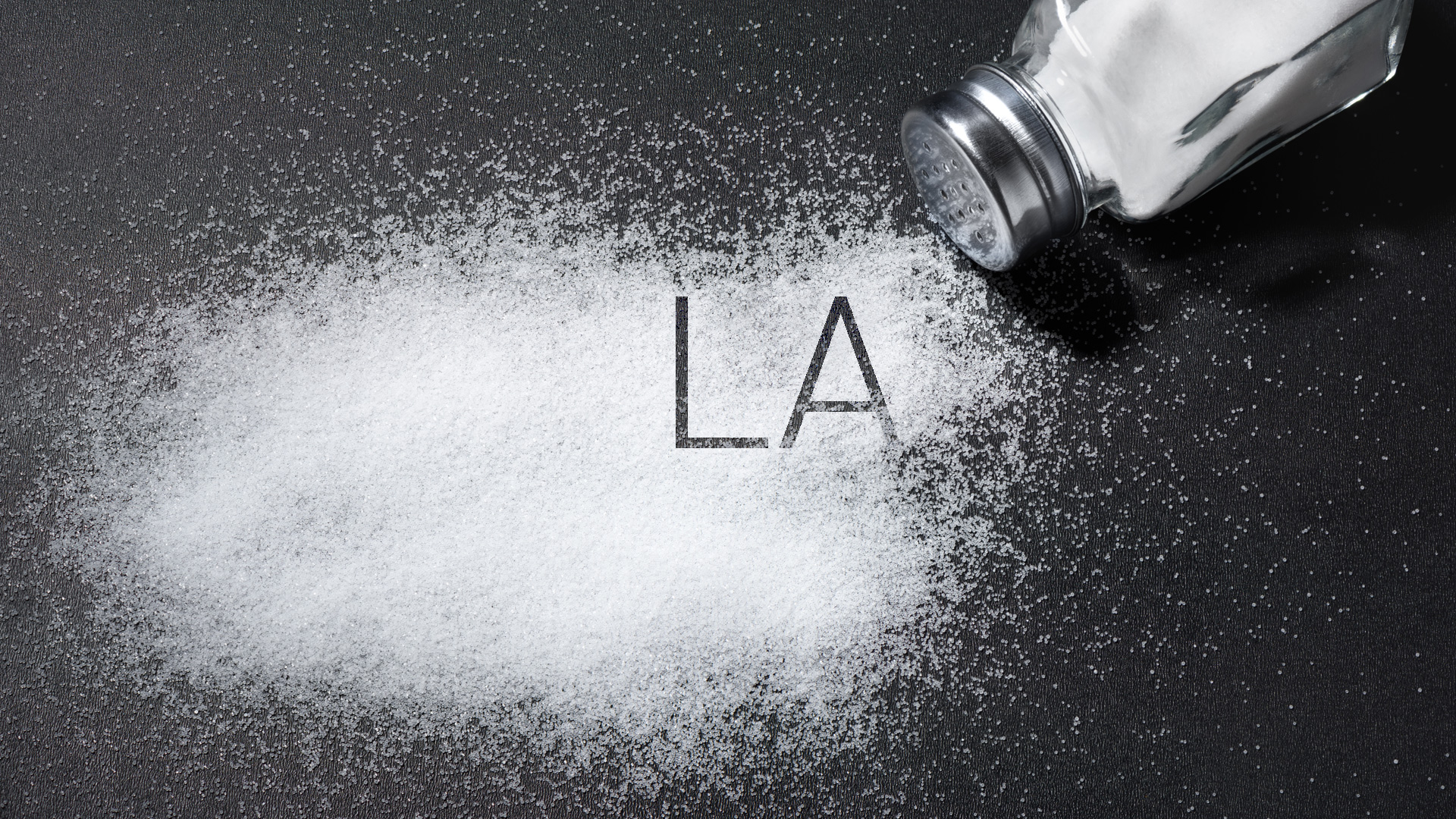For the latest news and updates on Minnesota state and local tax
August 29, 2023
Minnesota DOR Provides Facts on Sales Tax Relating to Food, Food Ingredients, Cannabis Products
Authored by: Brandon Spinella and Jonathan Weinberg, JD, LLM, Principal
The Minnesota Department of Revenue’s revised guidance on sales and use tax on food, ingredients, and cannabis products took effect on July 1, 2023. Pursuant to the Department’s revised guidance, edible cannabis products are subject to the 10% Cannabis Tax, the 6.875% state sales tax, plus any applicable local sales taxes. Otherwise, food and food ingredients remain exempt from sales tax. Food and food ingredients include substances that are:
- In liquid, concentrated, solid, frozen, dead, or dehydrated form.
- Sold for ingestion or chewing.
- Consumed for their taste or nutritional value.
For more information related to sales tax for cannabis products, food, and food ingredients, please refer to the Department’s Fact Sheet.
If you have questions about how sales/use tax affects your business, please reach out to a member of the Withum SALT Team.
July 5, 2023
Minnesota Budget Provisions Become Effective July 1, 2023
Authored by: Leroy Solis, MBA and Courtney Easterday, MS
Minnesota’s recently enacted budget becomes effective July 1, 2023. The budget bill includes several spending provisions, including free public college tuition for families earning less than $80,000/year, broad housing assistance programs including rent assistance, universal school meals, a $1,750 per child tax credit, extended health insurance subsidiaries, and state funding for family and medical leave.
In order to fund these programs, certain tax changes will also take effect in 2023. The same budget bill enacts a delivery tax, taxes on adult use/recreational cannabis, an additional 1% income tax on individuals with AGI over $1M, and a phase-out of deductions for those same individuals, and increased sales taxes. Additionally, Minnesota will start taxing GILTI.
If you have questions about how state budget bills affect you or your business, please reach out to a member of the Withum SALT Team.
May 30, 2023
Minnesota House Passed Bill to Legalize Recreational Marijuana
Authored by: Breea Boylan and Courtney Easterday, MS
The Minnesota House has passed the bill HF100, which would allow adults 21 and older to buy, sell, and use recreational marijuana. This bill would create an Office of Cannabis Management to regulate cannabis and take enforcement actions. If enacted, retail dispensaries will be obligated to tax cannabis retail sales at 8%, in addition to any already imposed local or state taxes.
For questions about state excise taxes on the sale of cannabis products, please call a member of the Withum SALT Team.
March 17, 2023
Minnesota Updates Return Instructions for State Tax Refunds from Pass-Through Entities
Authored by: Jessie Racioppi and Bonnie Susmano, JD, MBA
On March 10, 2023, the Minnesota Department of Revenue announced an update to the 2022 Minnesota Form M1 Line 6 instructions. The instructions previously stated Line 6 of Form M1 should only include the state tax refunds reported on Federal Schedule 1 Line 1. The updated instructions now require amounts from Federal Schedule 1 Line 1 and state tax refunds from pass-through entities that are reported on Schedule KF, KPI, or KS to be included in Line 6. Taxpayers that filed their Minnesota Individual Income Tax returns prior to March 10, 2023, may have to amend their returns if they have state tax refunds from pass through entities reported on Schedule KF, KPI, or KS.
If you have questions about your Minnesota Tax Return, please reach out to a member of the Withum SALT Team.
December 23, 2022
The Minnesota Department Issues Guidance on the Taxability of Services
Authored by: Brandon Vance and Katie Szymanski, CPA
On December 19, 2022, the Minnesota Department of Revenue (DOR) released a notice regarding “services necessary to complete a sale.” Services that are rendered to complete the sale of taxable goods and services (e.g., interior design services coupled with the purchase of furniture) are subject to sales tax in Minnesota. A service is necessary to complete a sale (and subject to sales tax if):
- The retailer, in conjunction with the sale of taxable goods or services, requires or otherwise does not permit the purchaser to opt out of the service; or,
- The purchaser receives credit for the purchase of the service against a purchase of taxable goods or services from the same retailer; and,
- Contracting for or stating the service separately from the sale of taxable goods or services does not control whether a service is necessary to complete the sale.
If you have questions about whether your business is obligated to collect and remit sales and use tax, please contact a member of the Withum SALT Team.
June 17, 2022
Minnesota Nexus for Telecommuting Due to COVID-19 Pandemic
From March 13, 2020 to June 30, 2022, the Minnesota Department of Revenue had provided nexus relief for business income tax and sales and use tax purposes related to employees telecommuting due to the COVID-19 pandemic. During that period, nexus for business income tax and sales and use tax was not established solely from an employee temporarily telecommuting from Minnesota due to COVID-19. The Minnesota Department of Revenue has advised that guidance on this relief is being updated as businesses have begun to require employees to return to the office.
September 30, 2021
Minnesota – Updated Guidance on Prepared Food
The Minnesota Department of Revenue has recently released revised guidance on the sales and use tax treatment of prepared food in the state. The Department of Revenue has clarified three guidelines in which a food or drink item will be considered prepared food and therefore subject to sales and use tax:
- The food or drink is sold in a heated state or was previously heated by the seller; or
- Two or more ingredients are mixed by the seller and sold as a single item; or
- Eating utensils are provided by the seller.
Items such as bakery items, food that requires cooking prior to consumption, raw meats, poultry, seafood that require cooking before consumption, and foods that the seller only slices, repackages, and pasteurizes are example of items that will not fall under prepared food though they may match the item guidelines above. Food and drinks sold in restaurants or catering will continue to be taxed under normal tax laws.
July 16, 2021
Minnesota Tax Legislation Updates Selective Conformity
On July 1, 2021, Minnesota enacted law updating the state’s selective conformity to federal individual and corporate income tax law enacted after December 31, 2018. The Minnesota legislation provides, among other updates, an exclusion from gross income for loan forgiveness through the federal Paycheck Protection Program (PPP), allowances for businesses that received PPP loan forgiveness to deduct their associated expenses, and a $10,200 exclusion from gross income for unemployment insurance compensation. Also, effective retroactively for tax years beginning after December 31, 2019, , Minnesota conforms to IRC § 179, no longer requiring an addback for taking the IRC § 179 deduction for tax years 2020 and after.
Minnesota Enacts Pass-Through Entity Tax Election
Minnesota’s recently-enacted legislation also provides an election for qualifying pass-through entities to be taxed at the entity level. The election may be made for tax years beginning after December 31, 2020, and it is irrevocable for the tax year once made. The deadline to make the election is the date the return is due, or the extended due date. Electing entities must make estimated payments the same as required for the composite tax. Qualifying owners may claim a credit on their own returns equal to their share of a pass-through entity’s tax liability.
For additional information see HF 9.
March 23, 2021
Minnesota Update on Extension of Filing Deadline
In following with the Internal Revenue Service (IRS), the Minnesota Department of Revenue will allow a grace period for taxpayers filing their annual Minnesota Individual Income Tax return for tax year 2020. Those taxpayers now have until May 17, 2021, to file and make their payments without any penalty or interest. This grace period does not include individual estimated tax payments. (News release, Minn. Dept. Rev., 05/19/2021.)
March 23, 2020
Additional Time to File and Pay Minnesota 2019 Individual Income Tax
The Minnesota Department of Revenue has announced that taxpayers filing their annual Minnesota Individual Income Tax return for the tax year 2019 now have until Wednesday, July 15, 2020, to file and make their payments without any penalties or interest. This grace period does not include state estimated tax payments for individual income taxes due April 15, 2020, for the 2020 tax year.
While the Minnesota due date for the corporation franchise tax remains due on April 15, 2020, under current Minnesota law, businesses receive an automatic extension to file their state return to the later of November 15, 2020, or the date of any Federal extension to file. Furthermore, the due date of April 15, 2020, has not changed for partnerships, fiduciaries, and S-corporations, as these entities will receive an automatic extension to file their state return to the date of any federal extension to file.
Please note that those taxpayers who are unable to pay may request relief from other late-file or late-pay penalties, additional tax charges, or interests, for reasonable cause or the state of emergency declarations by the president and governor due to COVID-19. Taxpayers may request relief after being notified of a penalty.
March 21, 2020
30-Day Sales and Use Tax Grace Period
The Minnesota Department of Revenue is granting a 30 day Sales and Use Tax grace period as Identified in Executive Order 20-04. The Department will not assess penalties or interest. Identified business, such as restaurants, bars, and other places with public accommodation, that have a monthly Sales and Use Tax payment due by March 20, 2020, have until April 20, 2020, to make that payment.
These businesses should still file their return by March 20. This grace period for penalties and interest is only for monthly filers and only for the March 20 payment. Businesses can request additional relief from penalties and interest for reasonable cause after April 20.
The state income tax deadline remains on April 15. Learn more here.
July 2019
IRC Conformity
Effective May 31, 2019, federal changes are effective retroactively for corporate franchise and individuals income tax from December 16, 2016 through December 31, 2018.
State Starting Point Change
For tax years beginning after 2018 the starting point for the state return has been changed to Federal Adjusted Gross Income (FAGI) from Federal Taxable Income (FTI).
Marketplace Facilitator – Sales Tax Requirements
Beginning September 30, 2019, marketplace facilitators are now required to collect and remit sales tax if sales total $100,000 or more or have more than 200 sales in the state. This has been reduced from $250,000 per year.
Contact Us
The State and Local Tax (SALT) laws vary from state to state and are constantly changing. Reach out to Withum’s SALT Team for guidance on how to navigate your state’s local tax laws.



